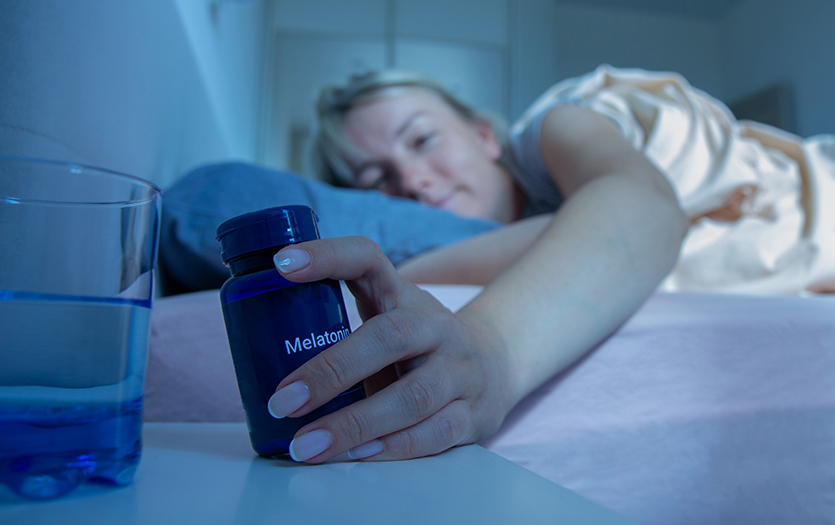
Hormones are chemical messengers created by the endocrine system that send critical messages through the body, assisting in the regulation of your body’s processes. Unfortunately, when those messengers aren’t functioning normally, they can significantly affect your mental, physical and emotional health. We asked Michele Helfgott, MD, PPG – Integrative Medicine, to elaborate on what a hormone imbalance could look like and the possible ways women can reset the condition naturally.
What is a hormone imbalance?
For women, a hormone imbalance can start as early as age 25 and can last until the age of 80. Usually, a hormone imbalance occurs when your female hormones, specifically estrogen, testosterone, progesterone, DAGA and cortisol, are out of whack and unbalanced. For some women, this can look like mood changes, fatigue and hot flashes, while others may experience night sweats, sleep disturbance, daytime sleepiness, changes in their menstrual cycle and even weight gain. These imbalances can also happen to teenagers. Many may think they are too young, but if they experience some of the issues I mentioned, it could be due to a hormonal imbalance.
What are some warning signs and symptoms of a hormone imbalance?
Some definite warning signs and symptoms of a hormone imbalance could include those I mentioned previously. With that said, it’s also important to understand that the thyroid plays a significant role. While the thyroid is not a hormone, it does produce hormones. So, if you are experiencing a thyroid imbalance, you might also see some of the following:
- weight gain/weight loss
- hair loss
- dry skin and nails
- constipation
- diarrhea
- heart racing
Moreover, my mentor used to talk about a hormone symphony, which means there is a relationship between the thyroid, cortisol and female hormones. If there isn’t a balance between all three, often, women will experience the symptoms we’re discussing.
What are the common culprits of a hormone imbalance?
When women, especially those in their 20s and 30s, start their families, they tend to put themselves last. They have a hard time balancing it all. Often, they are busy doing everything for their children and work and forget to take care of themselves. Usually, they aren’t eating healthy, are skipping meals, not exercising and are highly stressed, which often can lead to a hormone imbalance.
Remember I told you about the symphony? It’s like you have the violin and the piano, but you don’t have the trombone. You have instruments missing, so the symphony isn’t going to run smoothly or sound as good as it usually would if everything was there. It won’t work.
What does this mean? Well, when your stress hormones are all over the place, your thyroid will become low functioning because it’s trying to make up for what the stress hormones are doing. This leads to changes in your estrogen, progesterone and testosterone, leading to those imbalance symptoms. For this reason, it’s crucial to find balance. Try to get at least 7-8 hours of sleep each night, take an hour for yourself at some point in the day, eat healthily and don’t skip meals.
Furthermore, I want people to understand that stress isn’t just emotional but can manifest in many forms. Women don’t realize it, but stress can also look like:
- constipation
- headaches
- poor nutrition
- skipping meals
- inhaling food
- less than seven hours of sleep a night
- sitting too much
- not moving enough
You might think it’s crazy, but let’s look at an example. You’re not sleeping at night or eating right, so you find it hard to get through the day. Because of this sluggishness, you start drinking more coffee or soda. That keeps you going for a while, but it’s also causing issues with your bowels, making constipation or your stomach worse. Before you know it, you’re gaining weight and even having to deal with prediabetes. Everything is interconnected.
Our lifestyles are a big culprit too and could be another form of stress. Think about it. We don’t have time to eat right. We are so busy and often shovel our food in, inhaling it to quickly move to the next task in our daily routine. It’s a stress you don’t think about or realize is even happening, but it’s important to sit down, savor and eat nutritious food.
Bottom line, you might not feel stressed, and everything in your life may be going well, but it’s essential to take a step back and perform an inventory of the stressors in your life. You might be surprised to find that there are things you need to work on. We all need to take the time to invest in ourselves and our health. Finding a balance is key.
What are the best ways someone can balance their hormones naturally?
Nutrition is huge! For example, if you said to me, “Dr. Helfgott, if I could only do one thing to balance my hormones, what would it be?” I would tell you time and time again, it’s eating right. For example, I have many women come to me because they have hot flashes and night sweats. Many of them are in their 40s, so they think they are going through menopause, but in reality, more than half of these women’s hot flashes and night sweats are due to sugar, drinking wine, skipping meals, etc. Eating the white hazards – those refined, high glycemic simple carbohydrates such as white potatoes, white rice, white flour, sugar and sweets – can cause those issues. Now, I’m not saying you can’t have wine once in a while, but that does not mean once a week. Instead, it’s maybe once a month. By making these adjustments, eliminating the white hazards, not skipping meals (this does not include intermittent fasting) and reducing their alcohol consumption, many women find their hot flashes go away. The other two ways I recommend my patients naturally balance their hormones are getting enough sleep and managing the stress in their lives. Often, they don’t need hormones. They need to make some lifestyle modifications to balance everything out again.
If symptoms don't resolve naturally, what should someone do next?
If, after making the suggested lifestyle changes regarding sleep, nutrition and stress, they are still experiencing symptoms, then they should see their primary care provider to discuss their thyroid, hormones and cortisol levels. Once you get the conversation started, you should also speak to your physician about having your thyroid and hormones tested, specifically your estrogen, progesterone, testosterone and cortisol levels. For further evaluation, you could also see an integrative medicine provider for those tests as well as an evidence-based, personalized care plan to help balance your hormones.
Final thoughts
Don’t wait. Start working on these things now. I want all women to remember not to feel guilty if they’re putting themselves first. Take that half-hour to sit or walk outside. Maintaining your health and well-being is just as important as maintaining that of your family.
For more information or to schedule an appointment, please call the Integrative Medicine office at 260-672-6590. For more about the services we offer, please fill out our request form, and one of our care team members will contact you with more information.




